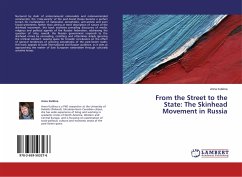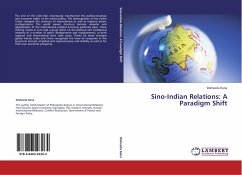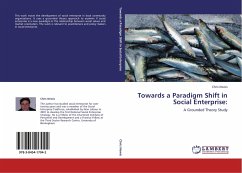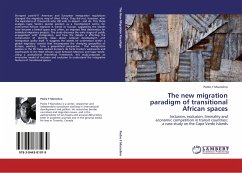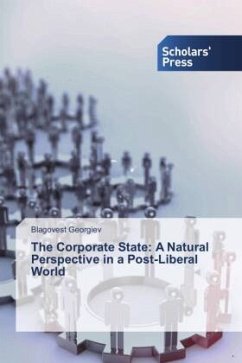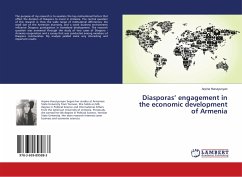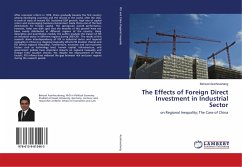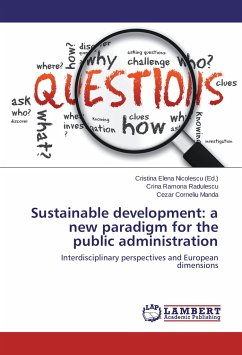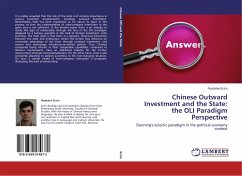
Chinese Outward Investment and the State: the OLI Paradigm Perspective
Dunning's eclectic paradigm in the political economy context
Versandkostenfrei!
Versandfertig in 6-10 Tagen
36,99 €
inkl. MwSt.

PAYBACK Punkte
18 °P sammeln!
It is widely accepted that the role of the state is of extreme importance in various economic developments, including outward investment. Nevertheless, little has been researched so far about its place in this process, so that the understanding of state-company interaction in the given area is not sufficient. In the present paper there is an attempt to clarify this type of relationship through the lens of the OLI paradigm, designed by a famous specialist in the field of foreign investment, John Dunning. The main claim is that there is a dynamic, reciprocal interaction between the state and ent...
It is widely accepted that the role of the state is of extreme importance in various economic developments, including outward investment. Nevertheless, little has been researched so far about its place in this process, so that the understanding of state-company interaction in the given area is not sufficient. In the present paper there is an attempt to clarify this type of relationship through the lens of the OLI paradigm, designed by a famous specialist in the field of foreign investment, John Dunning. The main claim is that there is a dynamic, reciprocal interaction between the state and enterprises, where the former may influence on ownership advantages of the latter through outward investment- and science and technology infrastructure-related policies. Thus, Chinese companies being inferior in their competitive capabilties, compared to Western counterparts, have an additional impetus for the further improvement through internationalization. On the other hand, state is also constantly adjusting its policies according to the ever-changing situation. On sum, a certain model of state-company interaction is proposed, illustrating this kind of relationship.





